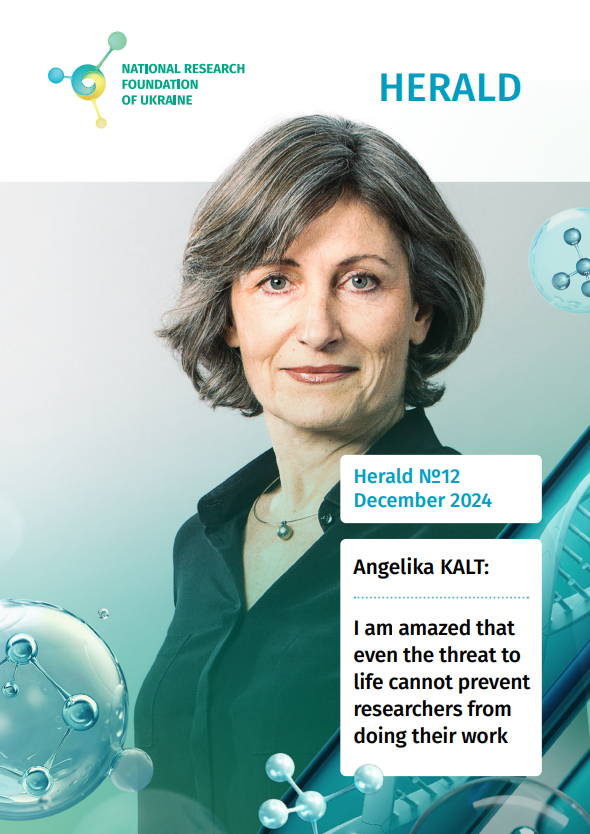
In the first weeks of the full-scale invasion of Ukraine by russian troops, the Swiss National Science Foundation (SNSF) was one of the first to support Ukrainian researchers. Researchers from Ukraine were given the opportunity to work in the country’s research institutions and join projects funded by the SNSF. This was a significant and very important support.
But the SNSF did not stop there. In the summer of 2022, the Swiss National Science Foundation and the National Research Foundation of Ukraine agreed to deepen cooperation between the institutions and launch a joint call. The call has been held and the winning teams are already receiving the funding.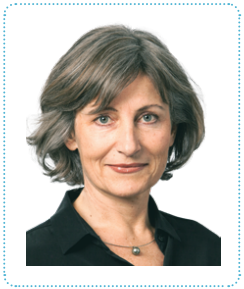
We asked Angelika KALT, Director of the SNSF, about the motivation to support Ukrainian researchers, the importance of cooperation with researchers from Ukraine for Swiss researchers, and the prospects for further cooperation.
Angelika KALT has been Director of the SNSF since 2016. The foundation funds a wide variety of research, from chemistry to medicine and sociology. In an interview with the Swiss daily newspaper Le Temps, Dr. Kalt noted that parliamentarians who make funding decisions need to be constantly explained about the benefits of research that affect all areas of life. She is convinced that the “exploitation of gray matter is fundamental in a country that has neither gold nor oil”.
– In October 2023, the National Research Foundation of Ukraine (NRFU) together with the Swiss National Science Foundation (SNSF) announced the launch of a joint call for research and development projects. Dr. Kalt, what did this call begin from? How and when did you come up with the idea to support researchers working in Ukraine?
– The SNSF’s first response was to meet the most urgent needs of Ukrainian researchers by offering immediate relief. Since 2022, the SNSF supported around 100 Ukrainian researchers to continue their research in Switzerland. However, it soon became clear that, despite the extreme conditions, science, research and innovation continued in Ukraine. The SNSF therefore also wished to support the researchers who remained in Ukraine and work with courage and determination at their institutions.
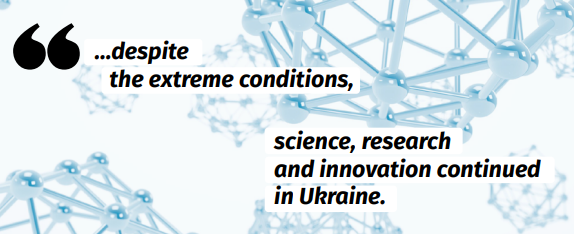
– In March 2022, the SNSF issued a statement strongly condemning russia’s full-scale invasion of Ukraine. How do you remember the first days of the full-scale invasion? What did you feel back then?
– The russian invasion was a blatant violation of international law and a humanitarian catastrophe. One can only be shocked. We at the SNSF felt with the Ukrainian people and their research communities. In the science, research and innovation ecosystem, we have a sense of unity and responsibility. As a result, the SNSF tried to act quickly and put in place two special measures for Ukrainian researchers. On the one hand, the SNSF released an extraordinary budget of CHF 9.5 million for Scholar at Risk (SAR), which enabled more than sixty Ukrainian scientists to be hosted without delay in some twenty Swiss institutions. The SNSF also granted additional subsidies of CHF 4.5 million, mainly to support the involvement of some forty Ukrainian scientists in projects already funded by the SNSF.
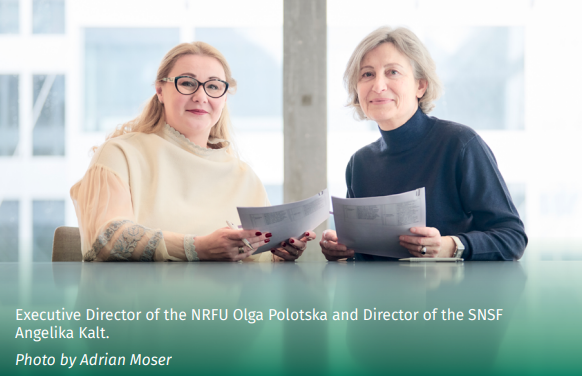
– The call ‘Ukrainian-Swiss Joint Research Projects: Call for Proposals 2023’ was the first in the history of SNSF to fund the work of researchers from another country working outside Switzerland. Why was the exception made?
– In fact, the SNSF has several funding instruments, some of which enable researchers to be funded abroad, but on an individual basis. There is no dedicated budget to intensify our collaboration with a particular country. This is why the SNSF opted for the bilateral programmes of the Swiss Confederation, controlled by the State Secretariat for Education, Research and Innovation (SERI). Within this framework, each country must in principle finance its national share of the joint projects. Moreover, bilateral programmes are supposed to encourage only extra-European collaborations. However, in view of the very difficult situation of research in Ukraine due to the russian invasion, SERI accepted a double exception to the regulations governing the bilateral programmes.
– More than 100 applications were submitted for the bilateral Ukrainian-Swiss call. After reviewing these projects, the SNSF decided to increase the call budget and fund the work of 20 teams, although at the start of negotiations the budget provided for funding was for about 10 joint projects. Who was the initiator? How was the decision to increase the budget made?
– The bilateral call with the NRFU triggered a high number of proposals, demonstrating the need for collaboration between research communities in Ukraine and Switzerland. While the initial budget was planned to fund around 15 projects, the evaluation process revealed the very high quality of most of the proposals.
At the end of the evaluation process, the SNSF proposed three options to SERI: a 15-project option as initially planned (CHF 5.6 million), an 18-project option (CHF 6.8 million) and a 20-project option (CHF 7.6 million). In July 2024, SERI approved the 20-project option. Ultimately, increasing the budget of the call was not just a financial decision, but a recognition of the huge efforts made by the research teams.
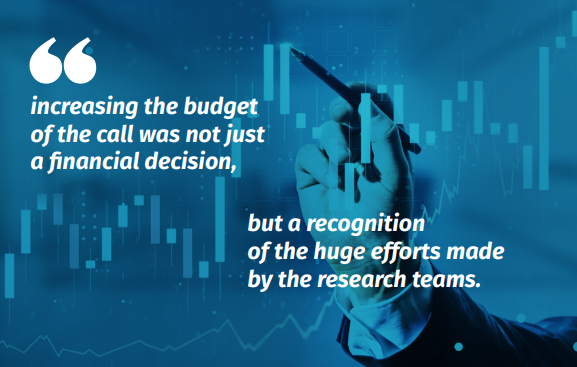
– The topics of the winning projects are very broad, ranging from the study of elementary particle physics, compact galaxies, Alzheimer’s disease, to the study of changes in land cover during hostilities. The projects are implemented by teams from the frontline cities of Kharkiv and Sumy (these cities are shelled by russians day and night with guided bombs, missiles, and drones), as well as from Kyiv, Lviv, Uzhhorod, and other Ukrainian cities. Dr. Kalt, what is your impression of the projects and the work of these teams?
– First of all, admiration for the Ukrainian teams. It shows the incredible resilience of the Ukrainians in a psychologically and materially difficult context. Even the threat to life by russian shelling and attacks cannot prevent researchers from doing their work.
We were also impressed by the diversity of the research topics, which testifies to the richness of the Ukrainian scientific landscape.
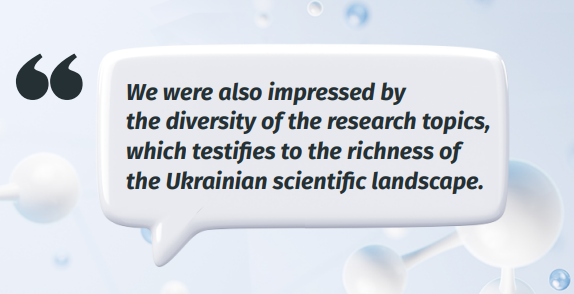
– The SNSF support is extremely important for Ukrainian researchers. Thanks to Swiss funding, our researchers will be able to perform research for which the budget of Ukraine lacks funds during the war. Cooperation with Swiss researchers will also contribute to expanding research contacts and creating a research network. All of this increases the resilience of teams and research institutions, and in some cases, it prevents researchers from leaving their research jobs. Dr. Kalt, what does the Swiss research community gain from cooperation with Ukrainian researchers?
– Research is collaborative and global. This is why international cooperation has always been, and will remain, central to Switzerland and the SNSF. What we saw in the joint call is that Ukraine has a strong scientific tradition in Physics and Mathematics. This creates great opportunities for groundbreaking discoveries and innovations and allows to develop the collaboration in other fields.
– The SNSF has been operating since 1952, and it has come a long way since then. Under your leadership, the Foundation has worked to improve the quality of research, developed new assessment methods, improved funding schemes, etc. The NRFU is a young institution, that has only been working for six years, three of which have been during the war. Dr. Kalt, as a researcher and Director of the SNSF, what advice would you give to the Ukrainian foundation on attracting funding, supporting early career and female researchers, as well as on maximizing the benefits for researchers and the country?
– The SNSF never had to work under the circumstances which NRFU is currently experiencing and hence has no advice to give. We think you are doing a great job.
As general advice in times of peace, we recommend favouring an open, bottom-up, curiosity-driven approach to funding over a top-down thematic or mission-oriented approach. Our experience has shown that letting researchers choose their research topics leads to excellent results which help to boost a country’s innovation potential. We also think that our career funding instruments provide useful career boosts for early-career researchers and help to attract talents. Our career tracker cohort study shows that an overwhelming part of the young researchers we have supported made important career steps in research afterwards – in the public and in the private sector.
– What would the SNSF like to see in the further cooperation with the Ukrainian research community? What needs and issues could this cooperation address?
– Support for Ukraine aligns with Switzerland’s commitment to fostering peace, innovation, and progress through international partnerships. This is why the scientific ties between our two countries can only continue to grow. We are looking forward to seeing the results of the funded projects. Based on that information, we will be able to better consider what is necessary and desirable for the continuation of the collaboration between SNSF and NRFU. However, we imagine that the return of researchers to Ukraine is a key issue. Ensuring it happens under the best possible conditions will require collective effort.
Interviewed by Svitlana GALATA

